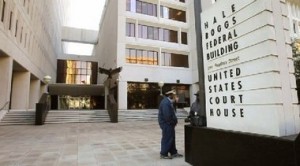Tommy Williams CFP
schreveporttimes.com
June 18, 2011
Now that most of you have completed your tax returns for 2010, perhaps we might reflect on the most dreaded of tax consequences, the IRS audit.
We spend a considerable amount of time in an effort to be tax efficient. Defer taxes, avoid them and use every tool and technique offered by the Internal Revenue Code to legally limit our tax cost. Given the financial struggles of our federal government, it shouldn’t surprise you to know that the IRS has nearly doubled its examinations of returns from the richest taxpayers.
IRS audits are up nearly 8 percent for the wealthiest Americans. This spring, the Internal Revenue Service released the 2010 IRS Data Book. Journalists and tax professionals looked inside and noticed a couple of eyebrow-raising statistics. The first is that the IRS audited 18.4 percent of 2010 tax returns filed by taxpayers with adjusted gross incomes above $10 million. That’s up from 10.6 percent for 2009. The second is that taxpayers with adjusted gross incomes between $5 million and $10 million were also targets. Audits increased by 55 percent for this group in 2010 with the percentage of audited returns jumping from 7.5 percent to 11.6 percent. So what’s going on here? The IRS has ramped up its efforts to investigate offshore bank accounts and tax shelters, and it appears to be acting on its newfound knowledge. It started a Global High Wealth Industry Group in 2010 to “centralize and focus IRS compliance expertise involving high net worth individuals.”
As IRS Commissioner Doug Shulman said at a meeting of the New York State Bar Association Taxation Section, “We’re looking for and finding points of leverage, also called ‘nodes’ of activity, where multiple people not paying taxes can be detected. Financial institutions are one such potential node of activity. Promoters of evasion schemes are another.”
Now the IRS has started an Offshore Voluntary Disclosure Initiative, providing information in eight languages to reach taxpayers and preparers who are non-native English speakers. By coming forward about undisclosed offshore accounts, they stand a chance of avoiding criminal prosecution.
Audit rates increased across the board last year. The overall IRS audit rate was 1.11 percent in 2010, up from 1 percent in 2009. The taxpayers least likely to face an audit were within the $75,000 to $100,000 adjusted gross income range with 0.64 percent of their returns being audited.
Experts tell me to do your part to look good. Most audits are not purely attributable to bad luck. Why not do the little things that may help to decrease the odds? Some of the basics are to document all expenses relatable to your business, report every bit of income, claim sensible but not outlandish deductions, avoid portraying a hobby as a business venture, sign your return and work with a really good tax preparer.
If you do find yourself with a tax problem, I’d suggest you invest in some professional guidance.
The opinions voiced in this material are for general information only and are not intended to provide or be construed as providing specific investment advice or recommendations for any individual. To determine which investments may be appropriate for you, consult your financial adviser prior to investing. All performance referenced is historical and is no guarantee of future results. All indices are unmanaged and cannot be invested into directly.





Follow Us!